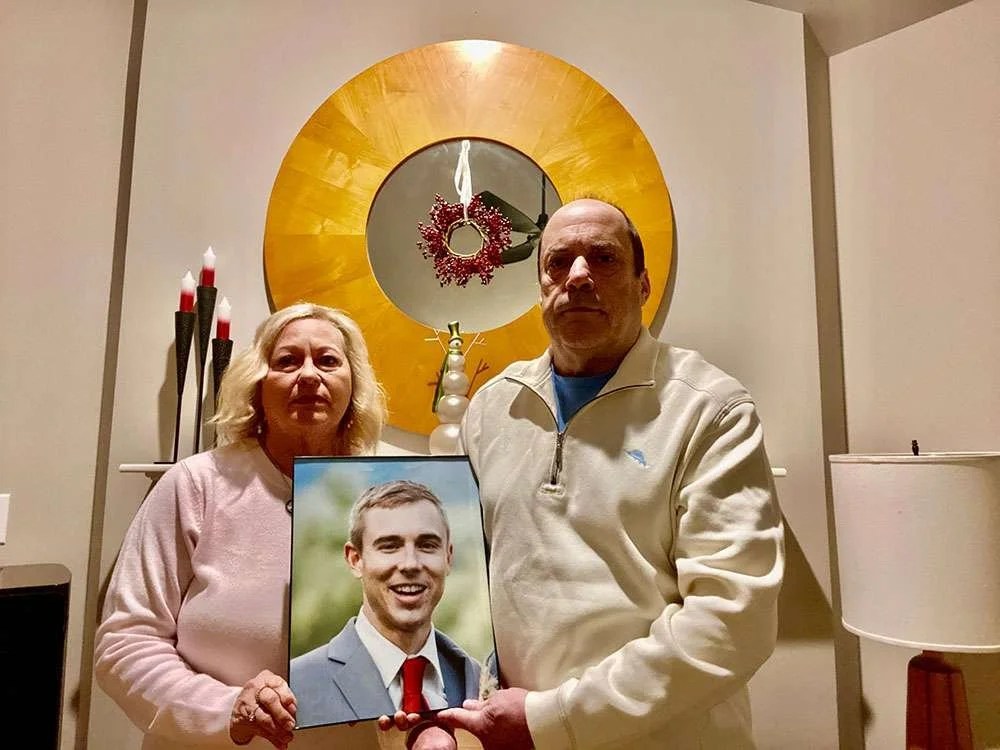
Kratomkills.com

Audio By Carbonatix
Recent reporting by Westword has thrust a centuries-old botanical back into the spotlight, telling the story of a man who became dependent on powdered kratom leaf before eventually detoxing. His account is an important reminder that even kratom leaf, consumed safely by about 23 million Americans, can be habit-forming. But it also risks blurring a critical line in an ongoing policy debate: the distinction between all-natural kratom and lab-made opioids now flooding gas stations and smoke shops.
The key differences between these two types of products are worth clarifying: Kratom leaf — the dried and ground leaves native to a Southeast Asian tree — has enjoyed centuries of traditional consumption. While it carries some risks, particularly with heavy or long-term use, it is not the same as the neon-colored bottles and pressed tablets containing concentrated synthetic 7-hydroxymitragynine (7-OH). These lab-made opioids are falsely marketed as kratom but chemically engineered to mimic hard narcotics such as heroin or fentanyl.
My oldest son, Daniel, died in 2021 after consuming a so-called “kratom” product that was concentrated well beyond natural levels found in leaf kratom, combined with diphenhydramine, the sedative in Benadryl. He believed he was consuming something benign. But what he actually ingested was a hyperpotent street drug, sold legally in a store, with none of the warnings that could have informed his purchase and saved his life.
It was in my son’s memory that Colorado legislators passed the Daniel Bregger Act earlier this year. Instead of a blanket ban on natural kratom leaf, the new law puts commonsense protections in place: prohibiting sales to anyone under 21, requiring clear labeling and dosing information, regulating candy-like packaging designed to lure children, and capping concentrated synthetic 7-OH content at trace levels. These protections are the bare minimum consumers should expect when buying any product branded as safe.
Unfortunately, as Westword’s reporting noted, the story doesn’t end there. Concentrated synthetic 7-OH products continue to move across state lines, misleadingly advertised as “natural” and “safe” without regard for the devastation they leave behind.
The Food and Drug Administration has already made its position clear: Concentrated synthetic 7-OH is not kratom, not a dietary supplement, and not an alternative to prescription opioids. This summer, the FDA went further, recommending that concentrated synthetic 7-OH be classified as a Schedule I substance under the Controlled Substances Act, the same category as fentanyl or heroin.
Now, it’s time for the Drug Enforcement Administration to follow through on the FDA’s recommendation. Scheduling concentrated synthetic 7-OH would give federal authorities the tools they need to shut down the bad actors co-opting kratom’s established safety profile to sell harmful synthetics. It would send a stark message to retailers and distributors that lab-made opioids have no place on retail store shelves. And it would give families like mine some measure of reassurance that no one else has to lose a child to a deceptive, dangerous product.
Colorado drew the line. The FDA laid out the science. Now, it’s up to Washington to finish the job. The choice should not be difficult: On one side of this debate are foreign labs and cash-only retailers fueling for-profit addiction. On the other side are American families who simply want consumer transparency and community safety.
Natural kratom leaf is not the enemy — concentrated synthetic 7-OH is. And until lab-made opioids are scheduled by the DEA and removed from stores, lives like Daniel’s will remain at risk.